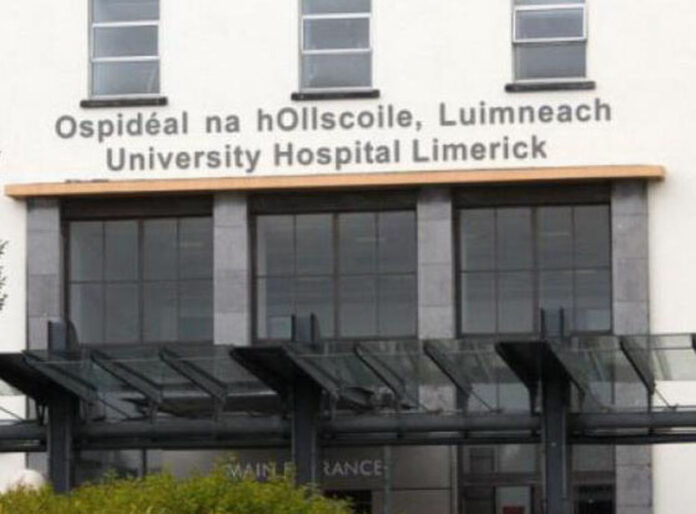As University Hospital Limerick (UHL) achieves a new record-breaking 130 patients on trolleys, a nursing union has claimed the provision of safe and timely care is “impossible”.
INMO Assistant Director for Industrial Relations for the Midwest, Mary Fogarty said the latest record, which was reached on Monday, comes as no surprise to her members who have been working in overcrowded and understaffed wards with no reprieve for years on end.
“The fact that there are more patients on trolleys across the hospital itself than in the emergency department itself is making the provision of safe and timely care impossible. Patient flow out of the emergency department is proving difficult because of the sheer volume of trolleys across the hospital.
“Our members are burnt out and demoralised as a direct result of their working conditions. It is impossible for them to provide safe care in a working environment that is persistently dangerous.
“INMO members in the hospital met last week to discuss their grave concerns about their safety and that of their patients. INMO members feel that none of the interventions directed by hospital management have had any positive impact to date.
“Hospital management and the Health Service Executive must outline what targeted interventions they intend to carry out to take the pressure off our members for the sake of patient safety,” she stated.
The UL Hospitals’ Group stated University Hospital Limerick was exceptionally busy on Monday, with 225 patients having presented to the Emergency Department on Sunday—significantly higher than our standard weekend attendance levels—and a high number of inpatients.
The number of admitted patients on trolleys on corridors in ED at 8am on Monday morning, was 39, with all other admitted patients in the department 25 either in designated bed spaces in single rooms and cubicles.
There were a total of 87 admitted patients waiting outside of designated bed areas across the hospital at 8am this Monday, including 24 patients boarded in the hospital’s Acute Medical Assessment Unit, and 34 patients on trolleys in inpatient wards, in line with our Escalation Framework.
The level of overcrowding is far in excess of where the gropu want to be, and it apologises to all patients who faces a long wait time for an inpatient bed
The group are following our Escalation Framework to maximise patient flow and create additional capacity to manage the consistently high levels of activity in the hospital. Staff are focused on ensuring that emergency care is first received by the sickest patients.
Ongoing measures include opening surge capacity across all sites; transferring patients on trolleys to our inpatient wards; additional ward rounds by medical teams to expedite discharges or identify patients suitable for transfer to Ennis, Nenagh and St John’s Hospitals; and working closely with our colleagues in HSE Mid West Community Healthcare in order to expedite discharges.
Elective activity is also being reviewed on a daily basis in UHL and across our sites, as our teams work to maximise surge capacity while ensuring that the most urgent and time critical cases can be accommodated as scheduled.
Additional measures introduced this year include the expansion of our GP-referral Medical Assessment Units to seven-day services across the region, with the dedicated MAU pathway for ambulance calls now implemented in Ennis, Nenagh and St John’s. Other admissions avoidance measures introduced include the opening of the Geriatric Emergency Medicine (GEM) Unit at UHL and the expansion across the region of the Pathfinder service, where NAS paramedics and health and social care professionals from UL Hospitals’ Group respond to low acuity ambulance calls from the over 65s and provide assessment and support in the home aimed at avoiding a hospital admission.
Dan Danaher
East Clare correspondent, Dan Danaher is a journalism graduate of Rathmines and UL. He has won numerous awards for special investigations on health, justice, environment, and reports on news, agriculture, disability, mental health and community.




